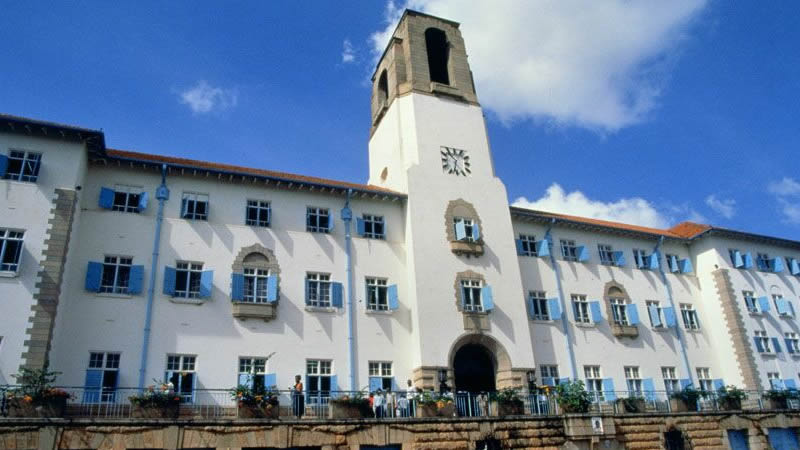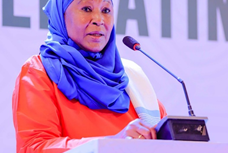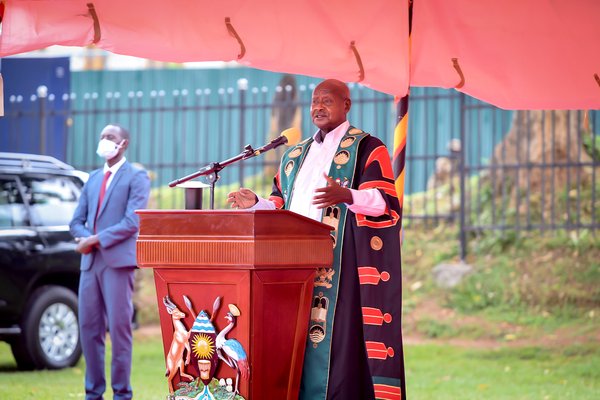By Agatha Christie Akello & Rita Kalendera
As stated on the university website, on 29th June 1971, 75 freshers were welcomed into “The Women’s Hall”, the second female students’ residence at Makerere. A week later, 147 continuing students were randomly selected from Mary Stuart Hall, bringing the total to 222 students. It was not until 3rd December 1971, that the residence was renamed “Africa Hall” as we presently know it, and more loosely called “suitcase” in comparison to Mary Stuart’s “box”.
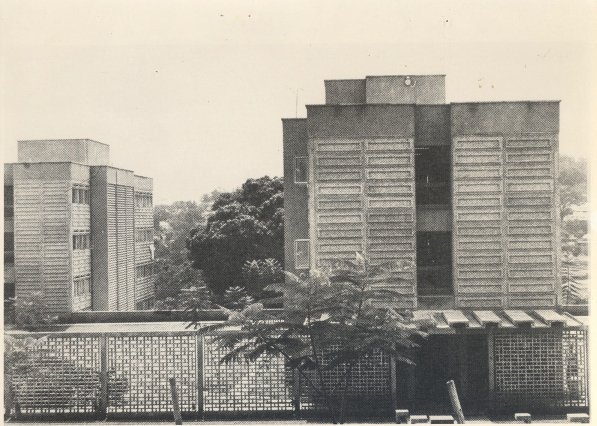
The New Women's Hall, as Africa Hall was called then, opened its doors to students in 1971
Africa Hall, like all the student residences on campus, is not just a place for accommodation. It is a community with values, long standing traditions, culture, and often the start of relationships that serve the students well into their adult lives. According to Hon Mary Abuk Garang, the 90th Guild Representative Council member of Africa Hall, there are five blocks from A the oldest, to E the newest, that house roughly 400 to 450 students at the residence. The young ladies are nurtured with the core values of integrity, dignity, excellence, punctuality, and serenity. These principles are encapsulated by the motto, “Walk in the Light”.
Hon Abuk, adds that to be an African lady means to uphold the aforementioned values while being your sisters’ keeper. “Africa Hall is the best home for female students. We do our best to associate with each other, maintain good hygiene and lead a dignified lifestyle,” she says.
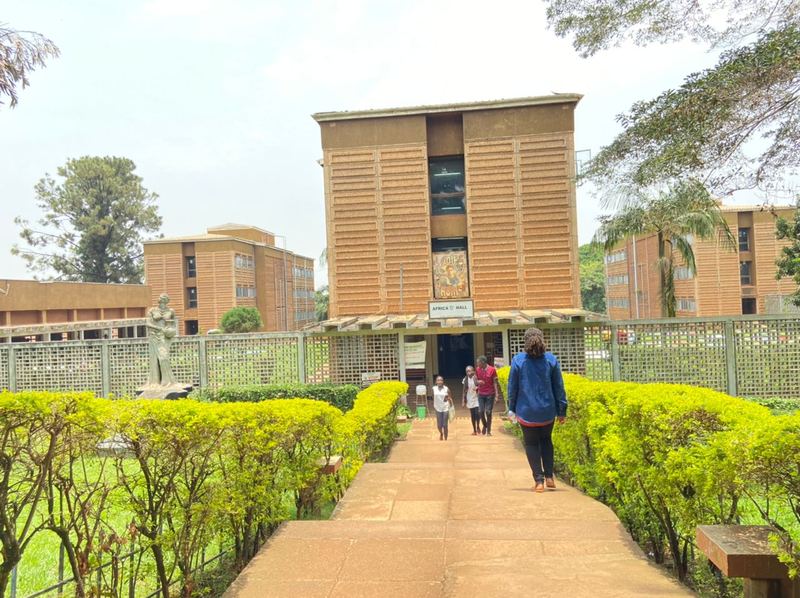
Entrance to the Africa Hall of Residence
One of the popular hall traditions is the Afro-Stone Solidarity that dates back to 1974. History has it that Livingstone Hall – a neighbouring male students’ residence, took on the responsibility of protecting Africa Hall ladies after their previous Nkrumah Hall associates decided to merge with Northcote Hall (now called Nsibirwa Hall) to form the Northcote Resistance Army in 1972. The Livingstone takeover was a difficult two year endeavour that was crowned by porridge night, an evening gathering that marked the beginning of the Afro-Stone Solidarity.
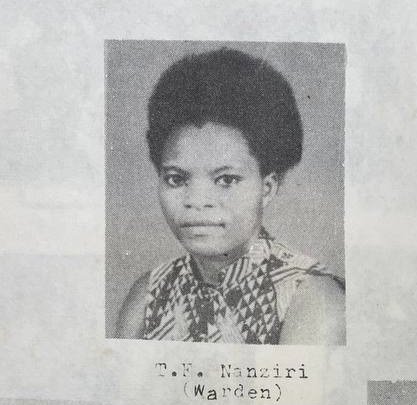
Ms. T.F. Nanziri, the first Warden of Africa Hall
How the Afrostone solidarity came to be
Till this day, there are several functions organized by the Culture Secretaries of the two halls of residence to strengthen their solidarity. These events, among other evening social gatherings, include the Fresher’s orientation week aimed at introducing new students to the halls, Fresher’s Dinner, Finalist Dinner to send off the graduates, along with the Afro-Stone cultural week that is held at the end of each academic year. The functions are funded by the Senior Common Room (SCR) budget or the Warden’s office.
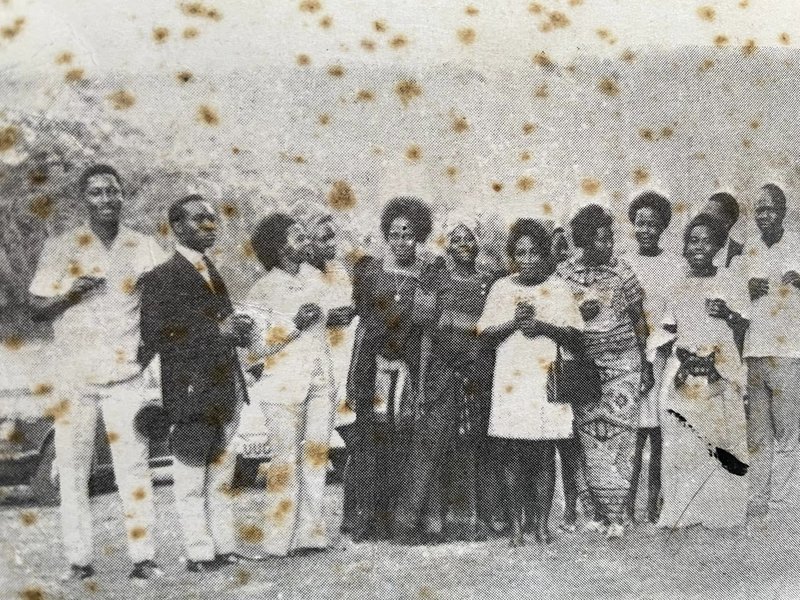
Members of Afro-stone solidarity at a hall cultural event in 1974.
The hall provides an opportunity for students to exercise their leadership skills through positions like SCR, that allows residents a chance to be a part of decision-making processes and serve as a link between students and management. The Guild Representative Council (GRC) on the other hand, is a more prestigious role that serves as a bridge between hall residents, university management and other guild members.
“Because the GRC position requires you to campaign, I learnt how to deal with different kinds of people and be more resilient. Besides getting my own room, I am also privileged to be part of a team that makes decisions for the hall and have a say in the SCR budget,” Hon Mary Abuk says.

Hon Abuk Mary, the 90th GRC Africa Hall
Privileges of residing in Africa
The privileges that come with being an Africa Hall resident are not reserved for leaders. Marion Akoli, a first year law student says her experience living in Africa has been lovely. Upon placement into her room, Marion added wallpaper, curtains, got a tablecloth for the reading table she shares with two roommates and even bought a new sink to give the space some feng shui.
Ms. Akoli adds that the hall has allowed her to meet many acquaintances. Additionally, they have freshly cooked food on a daily basis because Africa houses the famous Mama Ken’s kitchen and is a walkable distance from Kikumi-Kikumi, a vibrant student centre with an array of affordable healthy local foods.
“I feel safe. Africa Hall is on campus and convenient. I can walk at any time without worrying that someone will snatch my phone,” Akoli says.
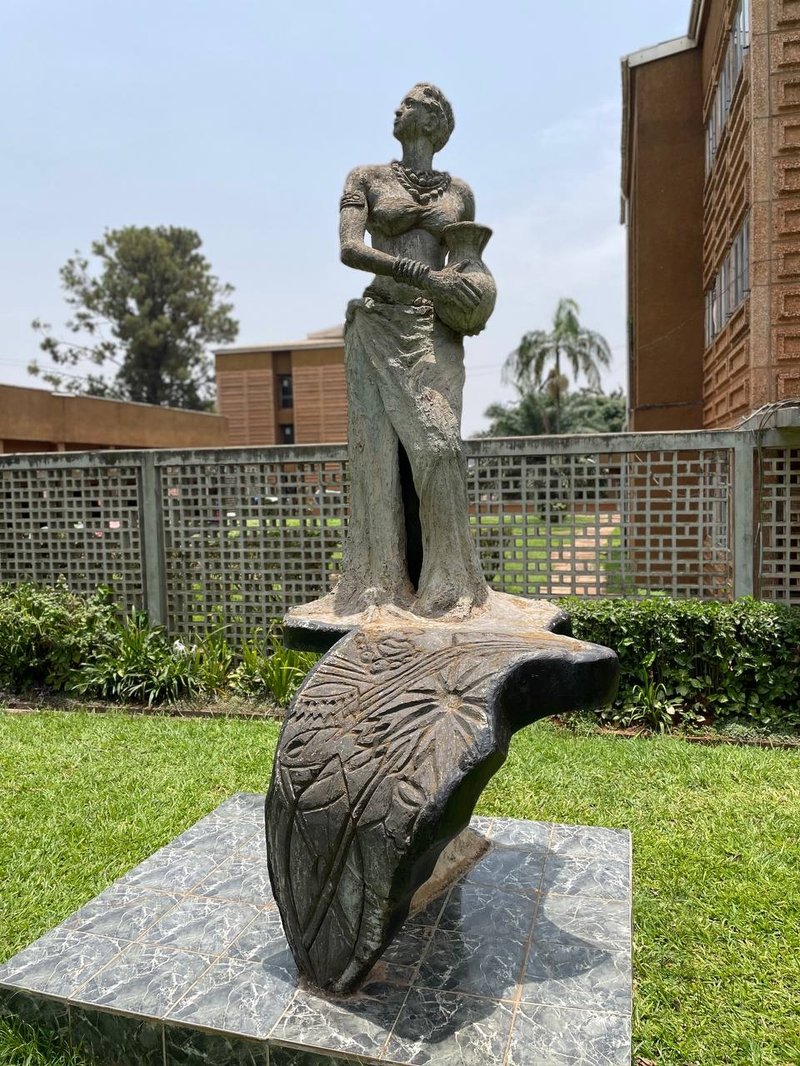
Sculpture of An African Lady just outside Africa Hall
She adds that the process of getting a room in the hall has been streamlined. For students enrolled in the government sponsorship scheme like herself, admission to your attached hall of residence is automatic. Privately sponsored students on the other hand, ought to apply through the Dean of Students and fill a residence form, then attach a photocopy of their admission letter, the Uganda National Students Association fee, the National Council for Higher Education and tuition receipt. These documents are then submitted to the Warden who in turn assigns you a room. The current rental fee for Africa Hall is Shs300,000 per semester.
According to both Abuk and Akoli, if you can overlook the sorry state of the bathrooms and the occasionally destructive cat population, living in Africa Hall is a wonderful experience that will allow you to focus on your books and make friends for a lifetime.
List of famous women who resided in Africa Hall
Rebecca Kadaga - First Deputy Prime Minister of Uganda
Maggie Kigozi - Former executive director of the Uganda Investment Authority
Related News
![]() Please join hands with the Makerere University Endowment Fund as it works towards attracting & retaining the best faculty, providing scholarships, and investing in cutting-edge research and technology.
Please join hands with the Makerere University Endowment Fund as it works towards attracting & retaining the best faculty, providing scholarships, and investing in cutting-edge research and technology.
